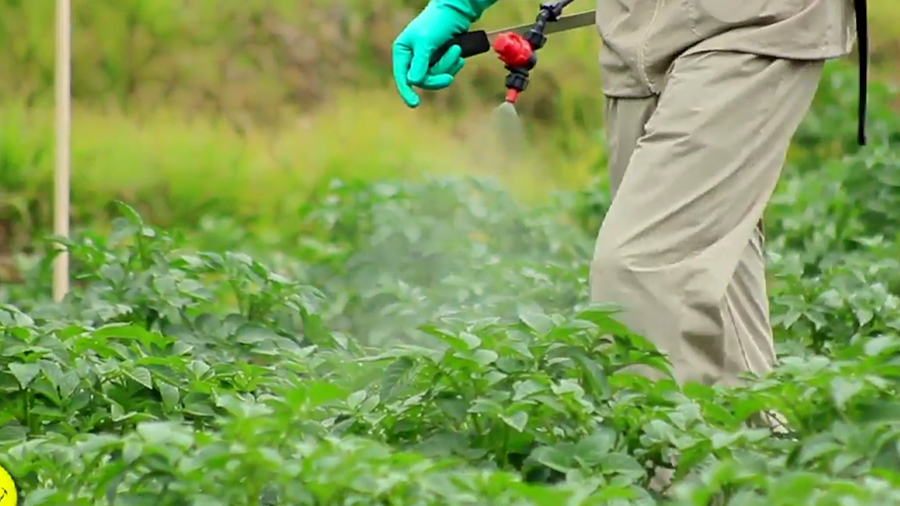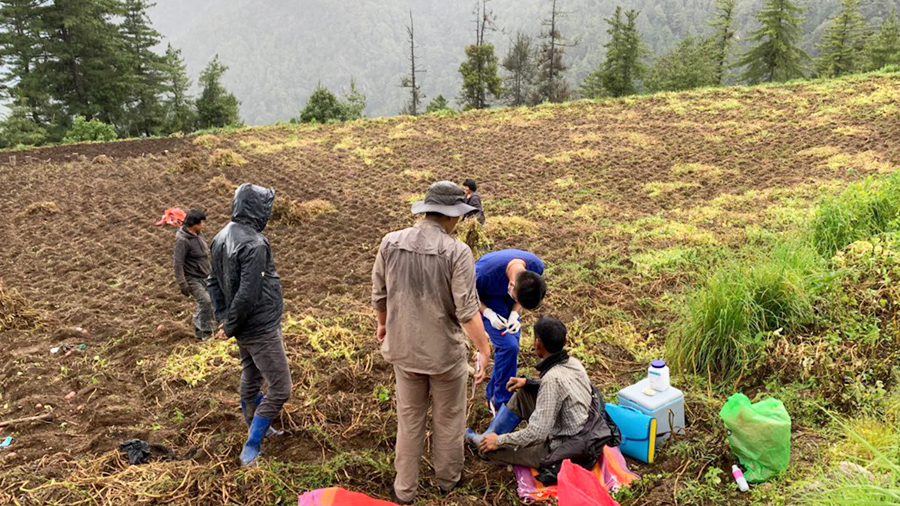
A study of farmers using pesticides in Thimphu, Paro, Chhukha, and Wangdue Phodrang found that they possess little knowledge about the extent of pesticide exposure. The study, conducted last year, also revealed low awareness about the potential health implications of improper pesticide handling.
 About 400 farmers who use pesticides on their farms participated in the study to determine their level of exposure and assess their knowledge, attitudes, and practices regarding the safe handling of pesticides.
About 400 farmers who use pesticides on their farms participated in the study to determine their level of exposure and assess their knowledge, attitudes, and practices regarding the safe handling of pesticides.
The dataset, maintained by the National Plant Protection Centre, included farmers from nine villages across the four districts.
According to the study, only about 20 per cent of the farmers had a high level of knowledge about pesticide use, while nearly 60 per cent had low knowledge.
“We conducted a study and asked our participants how they knew about pesticides. We asked a set of questions like, how they get exposed to pesticides, whether it is through inhalation or skin and asked whether the use of protective clothing would protect from pesticide exposure. So, through this assessment, we found out that the level of knowledge from those respondents was very low,” said Adeep Monger, deputy chief laboratory officer at the Royal Centre for Disease Control.
Additionally, only about 60 per cent of farmers used masks and gloves while spraying pesticides.
Approximately 80 per cent of the farmers had never attended any training or educational programmes related to pesticides throughout their farming careers.
The study also found that farmers exhibited clinical neurological symptoms, indicative of excessive pesticide exposure.
These symptoms included headaches, dizziness, nausea, difficulty breathing, and signs of cognitive dysfunction such as difficulty concentrating, tremors, numbness, tingling, and visual disturbances.
The National Plant Protection Centre provides public awareness and advocacy on the safe and efficient use of pesticides to mitigate this risk.
Last month, the centre reached out to around 600 farmers in Gangtey and Phobjikha Gewogs in Wangdue Phodrang. It plans to extend this advocacy to other areas covered in the study by the end of September.
The study was conducted by officials from the Royal Centre for Disease Control, the National Plant Protection Centre, and the Department of Public Health.
Sangay Chozom
Edited by Sherub Dorji







